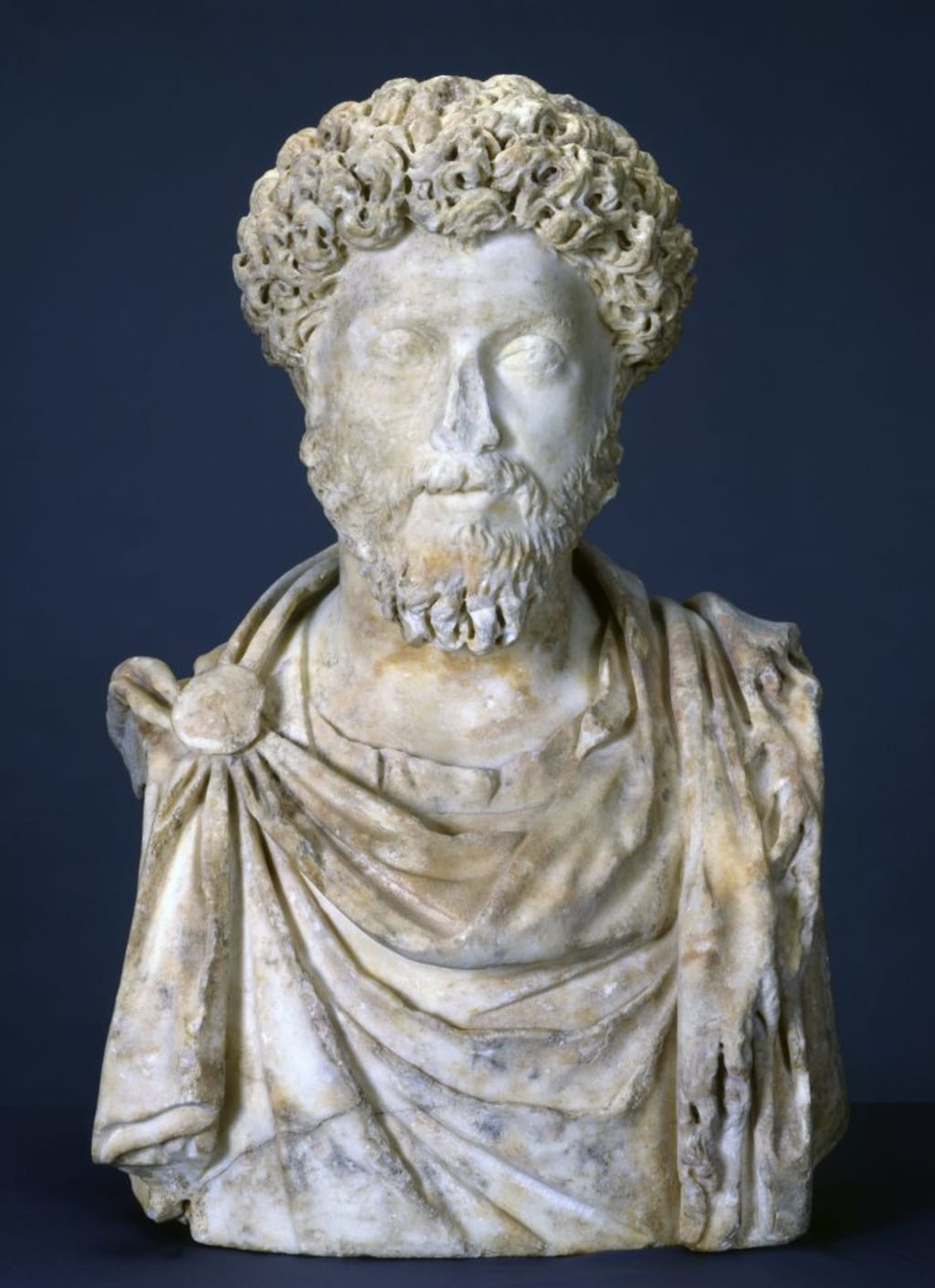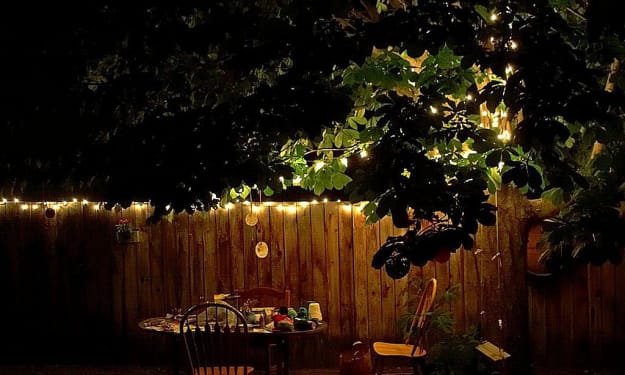How Marcus Aurelias' Meditations Can Help Us Prevent Violence
A Suggested Reading for Lifelong Learning

For thousands of years, human beings have perfected the art of symbology and communication. To survive the onslaught of natural chaos and evolution, we have created masterpieces of oral and written stories and histories that share our valuable wealth of knowledge with each other as we learn, grow, and find our Self. While some narratives have generated a massive amount of friction towards one another, others have delivered peace, prosperity, and a sense of hope. However negative or positive, one thing is certain: literature and the art of storytelling is powerful – the pen is mightier than the sword.
I have read so many books and heard so many tales through the years from an assortment of cultures and ethnicities, all of which stand proud amongst the millions of works of literature; however, there is one selection that I always turn to when times get tough. He was one of the greatest leaders history has seen. His obligations to his people reached the far ends of the known world. As a leader he was defiant, stubborn, and at times ruthless. Towards himself he was disciplined and spiritual. To his empire he was cherished and respected. This man was the Roman Emperor, Marcus Aurelias, and his collection of axioms and thoughts can be found in Meditations.

I found this collection long ago tucked inside a Harvard Classics edition from a friend of mine. I knew the name but not his writings, so I decided to read a few passages here and there just to become familiar. I had not yet begun my own search for the truth about my Self; but, as I began to read, I was transported into a purgatory stasis of my own mind and body. I was made to look into myself in order to understand my Self. The world outside could not solve my problems, nor be responsible for them. My problems and fears were of my own making. I let them take hold of me and use me. I found, however, a footing in this ancient book that I could take hold of. It is more applicable and reasonable for us all to re-read the works of old, for there lies gems of knowledge we have forgotten amidst the chaos of worldly clamors.
M. Aurelias does not begin by stating, “I am!” No, he begins by stating, “Behold Them!” He thanks all of those who fashioned him, for without their guidance he would not be the man he found himself to be. Instead of speaking of my accomplishments, I learned that I must thank all of those that visited my life for their patience, kindness, tolerance, and strict discipline first. Without them, I am nothing. Without each other, we are alone and have no purpose.
In Part II, M. Aurelias makes important observations that we should all take into consideration in our modern dilemmas. Practiced through most religions and spiritual exercises, the act of brotherly love and tolerance is detrimental to understanding one another and to help when called upon.
“Begin the morning by saying to thyself, I shall meet with the busybody, the ungrateful, arrogant, deceitful, envious, unsocial. All these things happen to them by reason of their ignorance of what is good and evil…I can neither be injured by any of them, for no one can fix on me what is ugly, nor can I be angry with my kinsman, nor hate him. For we are made for co-operation, like feet, like hands, like eyelids, like the rows of the upper and lower teeth. To act against one another then is contrary to nature.” (Pt II, 1)
Who am I to judge and jury? Am I not also full of defects of character and prone to self-centeredness, to unabated greed, envy, loneliness? If I see my fellow human being suffer the same, should I not take his or her hand and do my duty to comfort and heal, not lash out in anger and remorse to those around me? Would I want the same in return from my fellows?
These questions have fueled my passion to understand my kin, my species. There is more to us that opposition and violence. There cannot be just friction of ideology that engulfs our everyday lives as has been since we invented agriculture and civilizations. We have the ability to be more than separate identities. We all can be the sum, the whole, the universe if we so choose. But we must do it together if we are to survive in this new age:
“Take away thy opinion, and then there is taken away the complaint, “I have been harmed.” Take away the complaint, “I have been harmed,” and the harm is taken away.” (Pt. IV, 7)
If I have a negative opinion of something or someone, then I willingly open the gates for opposition and violence to govern. If I discard such opinions, I allow peace and prosperity into everyone’s lives, but I must change the way I believe. It must be done if we are to have equality and harmony.

If we cannot discard our blind ideas and limited ethics, shall we resume this ideological bantering back and forth for eternity?
“Time is like a river made up of events which happen, and a violent stream; for as soon as a thing has been seen, it is carried away, and another comes in its place, and this will be carried away too.” (Pt. IV, 43)
We live in a created historical materialism where humankind is a prisoner of their own ideology, their own mistakes – a slave to their own created power and ideal.
If we are to be removed from hate and discord, from the violence and otherness, we must abandon our old notions and embrace something new; whether that be a new system of law, a new governance, a new perspective of what it means to be human, or just acceptance of each other as we are, not as we would want others to be – a new philosophy without opposition.
At times I question what the right answer is to an ethical problem in front of me. In this world of differing beliefs and cultures, one right answer might be wrong for someone else; however, M. Aurelias advises us one solution:
“About what am I employing my own soul? On every occasion I must ask myself this question, and inquire, what have I now in this part of me which they call the ruling principle? and, whose soul have I now? that of a child, or of a young man [or woman]…or of a tyrant, or of a domestic animal, or of a wild beast?” (Pt. V, 11)
In asking myself what my intentions are, and whether or not I would have the same done to me, I am able to understand others better. I am able to notice my defects of character. I am able to have empathy and compassion. I am able to find courage to discard the hate and violence brewing inside and instead embrace love and caring. Opposition creates varying degrees of violence; in turn, this creates discord in our very own streets, neighborhoods, and families.
It has been years since I first read these meditations, and yet they still advise me today. M. Aurelias gives a solid foundation in his writings that we can all learn from and practice in our own affairs. In time, the violence we create towards each other may simmer instead of boil over. Change takes time, and since we have a little time left, let us open the stories and meditations from old and find the lessons of the past so that we may implement them today instead of reliving the violence once again.
About the Creator
James D. Greer
Hi! I am a published writer, singer-songwriter, and U.S. Army veteran of 15 years. I have traveled the world, experienced multiple cultures and communities, and am inspired by human nature and all we have to offer to each other!






Comments
There are no comments for this story
Be the first to respond and start the conversation.